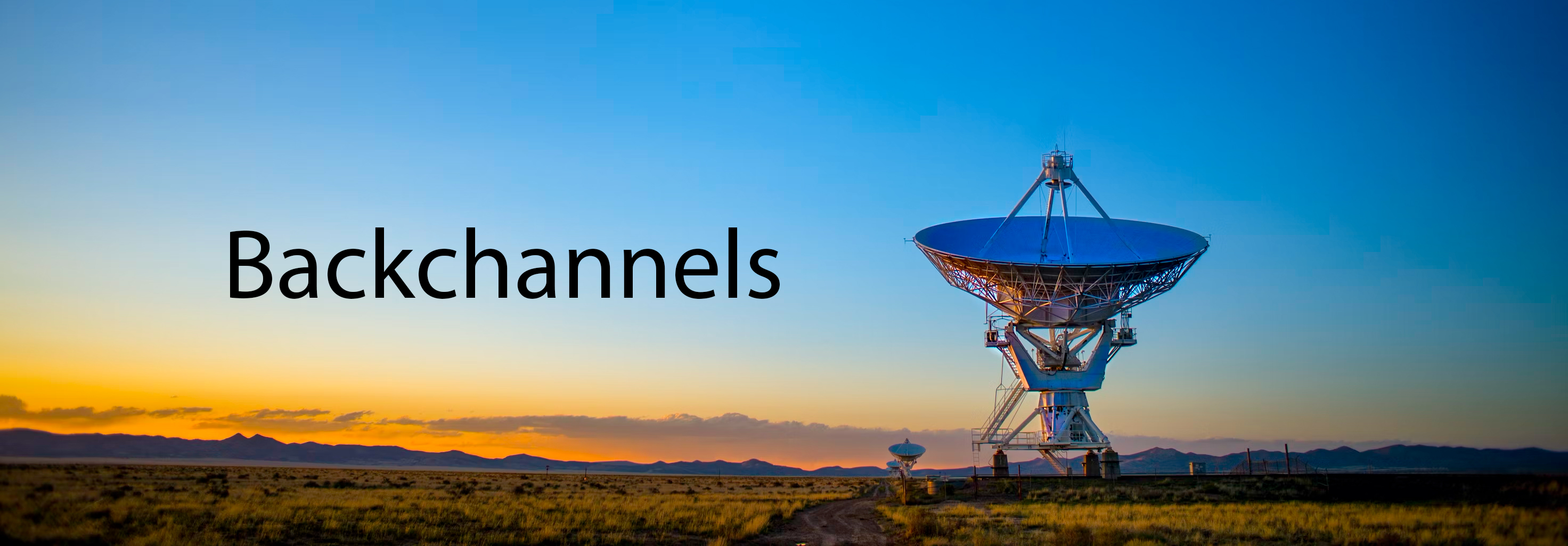
Linguists first used the term backchannel to refer to the spontaneous responses and signals that provide interactivity to what is only apparently a one-way communication. Social media users have adopted the term to refer to the unofficial, multi-directional online conversation that parallels formal academic exchange at a lecture or conference. The Backchannels blog is intended to have a similar relationship to scholarly discourse in STS. It provides an outlet for alternative-format scholarly communications, publishing shorter, timelier, media-rich communiques of interest to the global STS community. The editors welcome proposed contributions.
Location, Location, Location: Laboratory Politics in Late 20th Century Simian Psychology and Linguistics
Jan 19 2026
This post is the second in a 4-part series on “Sex and Gender in Primate Worlds,” following up on a panel of the same name at the 4S 2025 convening in Seattle, Washington, held on September 6th, 2025. The following post in the series will be released on February 2nd, 2026.
Beyond 'Yes or No': Affective Consent, and The Complications of Acknowledging Non-Verbal Consent
Jan 5 2026
This blog post welcomes Bri Matusovsky as a new assistant editor to the 4S Backchannels Global North team. Bri is a PhD Candidate in Medical Anthropology at UC San Francisco - UC Berkeley.
This post is the first in a 4-part series on Sex and Gender in Primate Worlds, following up on a panel of the same name at the 4S 2025 convening in Seattle, Washington. The following post in the series will be released on January 19th.
The Power of Instauration: Reimagining Aesthetic Practices
Oct 27 2025
A report from the panel “Creating, Crafting, Designing, Fashioning, Moulding, Shaping, Fixing. Aesthetic Practices as Instaurative Practices: How to Account for Them and for the Good they Produce?” at the 10th STS Italia Conference, “Technoscience for Good,” Milano, 11–13 June 2025
(Re)reading dependency: technology and power in Latin America / Releer la dependencia: tecnología y poder en Latinoamérica
Dec 15 2025
In this reflection piece, Luciana Musello shares the experience of rereading dependency theory in the age of technoimperialism alongside an interdisciplinary group of Latin American scholars
The bush turkey among the cats: misrecognition, modifications, and expertise in AI-operated lethal cat control
Dec 8 2025
Many emerging solutions to environmental problems are imagined as technoscientific. Here I detail how one AI-equipped conservation tool is made effective only through the labour, skill, and care of practitioners.
Rethinking Care: Reflections from STS Italia on Algorithms, Medicine, and the Politics of Health
Nov 10 2025
In this report from the 10th STS Italia conference in Milan, Benedetta Catanzariti (University of Edinburgh) and Natalia Rozalia Avlona (University of Copenhagen) share the central interventions presented by scholars contributing to discussions on “Re-ordering Care: Algorithmic Transformations of Medical Knowledge, Practice, and Governance”. Troubling the techno-optimist promises of algorithmic efficiency and expediency that increasingly shape the healthcare industry, the authors and...
STS in Asia or Asian STS: From a Training Program to a Global Conversation
Dec 1 2025
“Beheaded” STS? This report from the joint Tsinghua and Harvard-Yenching Institute program explores how scholars are using dialogue to move beyond "theoretical stress" and build a generative future for Asian STS.
Chronicity and Its Social Lives: Reflections on Everyday Experiences of Osteoarthritis
Nov 7 2025
In this post, Perseverence Madhuku discusses the tensions between biomedical, social, and personal understandings of ageing, immobility, and care in Zimbabwe through the case study of Osteoarthritis.
BOOK REVIEW: 'Feminism in the Wild: How Human Biases Shape our Understanding of Animal Behavior' by Ambika Kamath and Melina Packer, 2025 (MIT Press)
Nov 24 2025
Behavioral ecologist and feminist science studies scholar unite to offer paradigm shifting possibilities in an endlessly teachable new book: Feminism in the Wild.
The richness of STS scholarship in Brazil: takes on the 11th ESOCITE.BR Symposium
Nov 20 2025
The climate emergency took the main stage at the 11th edition of the Brazilian Association for the Social Studies of Science and Technology (ESOCITE.BR), organized shortly before COP30 in Belém
